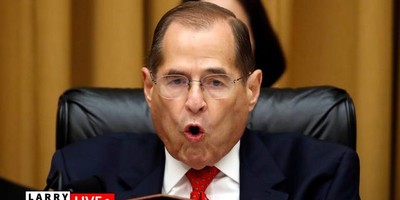Americans love hospital-based TV shows, ranging from such oldies as Marcus Welby, M.D. to today's Grey's Anatomy, in which dedicated doctors rush to help victims of car crashes, chemical spills, natural disasters, and even terrorism.
Sadly, in real life, when it comes to our health care, Dr. Welby doesn’t have the upper hand. Our health care system is vulnerable to plaintiff lawyers’ avarice.
Some lawsuits, of course, are well-intentioned and appropriate, but those guided mostly by greed play a regrettable role in our nation's ever-escalating health care costs.
Unnecessary lawsuits and excessive awards that unnecessarily increase the direct costs and future liability risk of health care providers add to the current crisis.
Consider a $25 million dollar court award against a nonprofit charitable West Virginia hospital over a dispute that involved as personal pride as personal injury.
A local physician was irked when the Charleston Area Medical Center refused to recognize his medical malpractice self-insurance plan. After settlement negotiations failed, he took the medical center to court and won a $25-million award from local jurors.
Now an excessive punitive damage award to a doctor disgruntled over having his clinical privileges temporarily relinquished presents challenges to this medical center that provides good health care to a far-flung patient community that includes many of Appalachia's poor.
Doctor John H. Schmidt III, who also practices at this hospital and who acknowledges that he could some day benefit from the plaintiff’s victory, nonetheless put the huge $25-million award into perspective: “I worry about what a $25 million loss will mean... Will programs for diabetes education or cancer treatment be affected? Will the area's only Level III neonatal intensive care unit be threatened? Will there be cutbacks to programs for young expectant mothers or those for physicians in training? Will the ‘Top 50’ award for the Center's Cardiac Surgery and Cardiology Services be compromised as quality programs necessary to sustain them are underfunded? Will the Trauma Center fail to maintain a Level I status?”
Recommended
While West Virginia's judicial climate still is ranked the worst in America in a recent survey of national employers, many other states also face a shortage of physicians and rising health care tabs in part because their judicial systems encourage an abundance of personal injury lawsuits.
* Hospital officials in Maryland are projecting a physician shortage that could be severe by 2015. Lawsuit liabilities, low physician reimbursements and limited medical school capacity are key elements.
* An exodus of top physicians already is occurring in New York, in large part because of rising malpractice insurance premiums. The situation is so serious the New York state government is considering using taxpayers’ money to help stem the state’s malpractice insurance crisis.
* Hawaii's medical association reports that climbing malpractice insurance costs have created physician shortages, even in that lush paradise. According to a report by Hawaii’s KGMB-TV, 42 percent of Hawaii’s OB-GYNs and 30 percent of Hawaii's orthopedic surgeons have already either left Hawaii or made plans to stop providing pregnancy care. The cost of medical malpractice insurance rose 90 percent between 2002-2007.
* A decade ago, Philadelphia had 19 hospitals that delivered babies. Today, only eight obstetric facilities remain, in part because of the relentless rise of malpractice premiums.
Unwanted patient outcomes are spurring high-payout lawsuits that ultimately damage health care delivery to millions.
A Chicago jury rendered a $22-million verdict against a hospital and a doctor when a woman died in childbirth because her high blood pressure led to a fatal hemorrhage. The money awarded her loved ones for loss of companionship could have been used to improve child-birthing resources for countless local mothers-to-be, or for other health care needs.
Amid the varying dynamics affecting patient care, liability is a common thread. Fortunately, some states are reducing their health care bills by capping court awards against doctors and hospitals.
California - often a national trendsetter - started the reform movement in 1975 when Marcus Welby, MD was still airing on TV. California’s medical malpractice premiums dropped dramatically and its doctor shortage disappeared shortly afterward.
Texas' 2003 damage cap law is heralded for causing about 3,000 doctors to seek licenses to practice in the Lone Star State in 2007 alone.
With America's health care increases far outpacing the cost of living index, West Virginia and other judicial hellhole states should wake up and take a cue from California and Texas.
The health of their residents may depend upon it.
























Join the conversation as a VIP Member